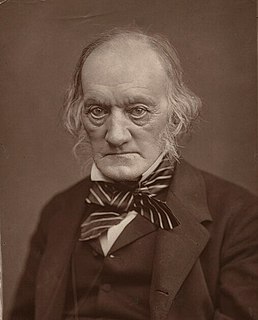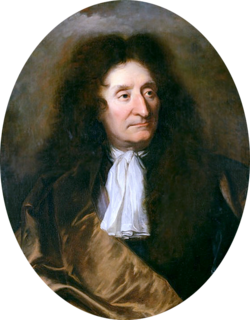A Quote by Richard Owen
Every step in the progress of this study has tended to obliterate the technical barriers by which logicians have sought to separate the inquiries relating to the several parts of man's nature.
Related Quotes
In Philosophy, the contemplations of man do either penetrate unto God, or are circumferred to Nature, or are reflected and reverted upon himself. Out of which several inquiries there do arise three knowledges, Divine Philosophy, Natural Philosophy, and Human Philosophy or Humanity. For all things are marked and stamped with this triple character of the power of God, the difference of Nature and the use of Man.
The whole history of these books (i.e. the Gospels) is so defective and doubtful that it seems vain to attempt minute enquiry into it: and such tricks have been played with their text, and with the texts of other books relating to them, that we have a right, from that cause, to entertain much doubt what parts of them are genuine. In the New Testament there is internal evidence that parts of it have proceeded from an extraordinary man; and that other parts are of the fabric of very inferior minds. It is as easy to separate those parts, as to pick out diamonds from dunghills.
You find as you look around the world that every single bit of progress in humane feeling, every improvement in the criminal law, every step toward the diminution of war, every step toward better treatment of the colored races, or every mitigation of slavery, every moral progress that there has been in the world, has been consistently opposed by the organized churches of the world. I say quite deliberately that the christian religion, as organized in its churches, has been and still is the principle enemy of moral progress in the world.
That a country, [England], eminently distinguished for its mechanical and manufacturing ingenuity, should be indifferent to the progress of inquiries which form the highest departments of that knowledge on whose more elementary truths its wealth and rank depend, is a fact which is well deserving the attention of those who shall inquire into the causes that influence the progress of nations.
Study the behavior of animals and you will understand human psychology and sociology. Study a flower excited under sunlight, and you will understand how all living things respond to light. The Almighty has provided everything in nature. Observe nature and you will grow. The cures of all illnesses are found in nature in the shapes of the body parts they were created to cure.
How shall we define occultism? The word is derived from the Latin occultus, hidden; so that it is the study of the hidden laws of nature. Since all the great laws of nature are in fact working in the invisible world far more than in the visible, occultism involves the acceptance of a much wider view of nature than that which is ordinarily taken. The occultist, then, is a man who studies all the laws of nature that he can reach or of which he can hear, and as a result of his study he identifies himself with these laws and devotes his life to the service of evolution.
Forgetfulness is necessary to remembrance. Ideas are retained by renovation of that impression which time is always wearing away,and which new images are striving to obliterate. If useless thoughts could be expelled from the mind, all the valuable parts of our knowledge would more frequently recur, and every recurrence would reinstate them in their former place.





































